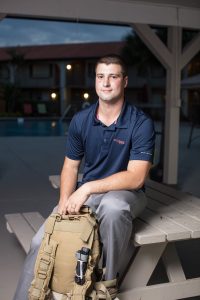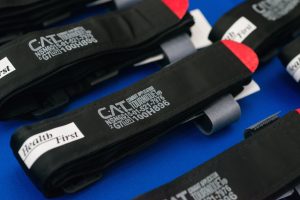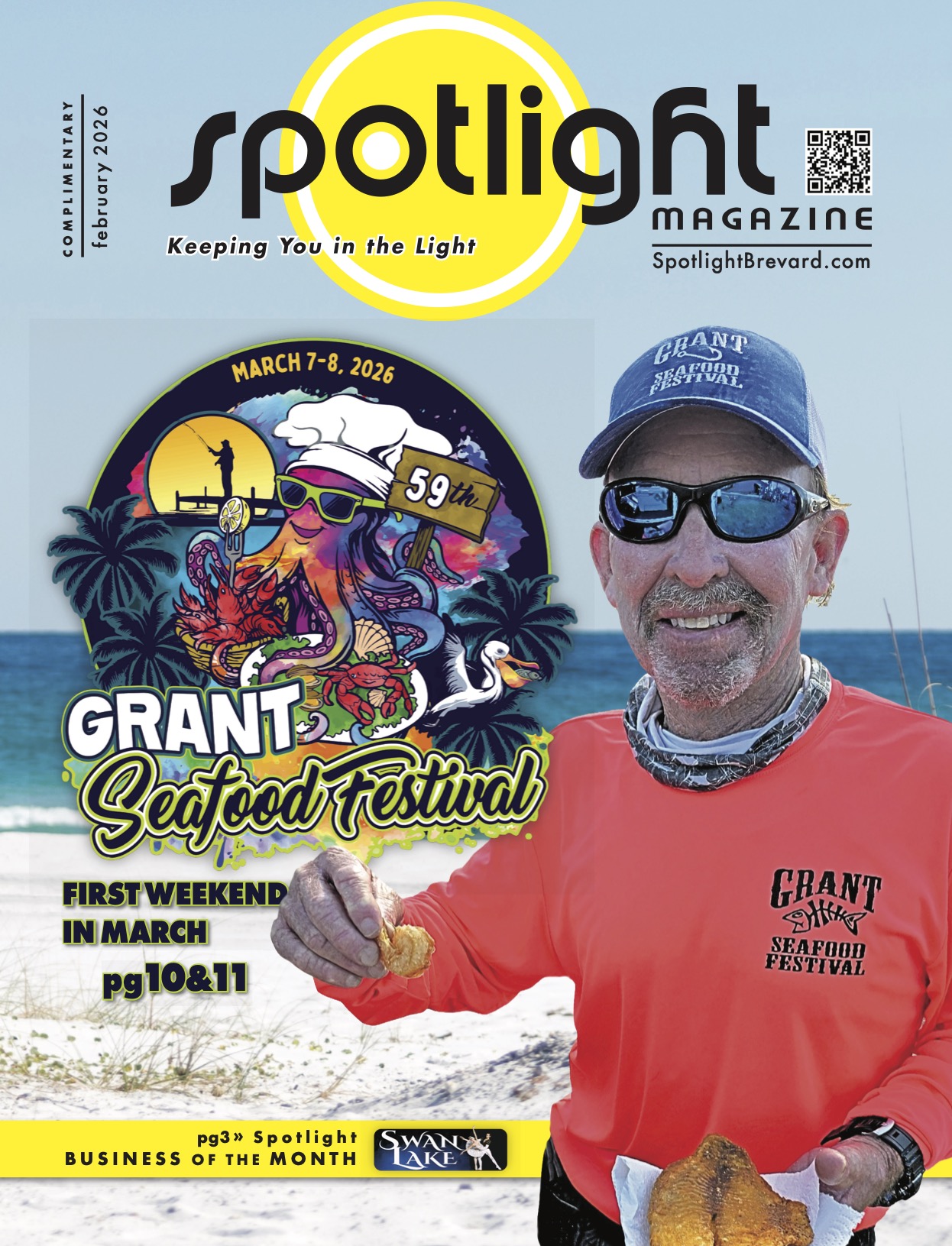 Jake Moore has wanted to help people since he was a kid. With a career in law enforcement on the horizon and dreams of eventually becoming a Marine, taking Health First’s free class on bleeding-control basics just made sense to him.
Jake Moore has wanted to help people since he was a kid. With a career in law enforcement on the horizon and dreams of eventually becoming a Marine, taking Health First’s free class on bleeding-control basics just made sense to him.
But the 22-year-old never expected he’d utilize those “Stop the Bleed” skills just two months later – especially for himself.
The Palm Bay man was accidentally shot while hunting with friends November 23, 2016. Moore was able to quickly apply a tourniquet to control bleeding from his left leg, just minutes after being wounded.
“It probably saved my life,” Moore said of the training and medical device.
Moore was one of the first civilians enrolled in the course that launched September 8, 2016, at Health First’s Training Center in Melbourne. It is at no cost to the public. The newlywed used the Stop the Bleed knowledge and complementary tourniquet gifted to class participants.
“If I hadn’t had the tourniquet, a whole array of things could have happened,” said Moore. “It could’ve been much, much worse. Having a tourniquet on hand and knowing how to use it was drastically life-changing.”
Health First has made Stop the Bleed, a nationwide bleeding-control campaign, a local priority. 
The class, taught regularly at Health First’s Training Center in Melbourne, teaches civilians basic but important bleeding-control skills, focusing on tourniquet use and pressure application.
That’s critical, given that trauma is the No. 1 cause of death for Americans ages 1 to 46, said Rob Spivey, a program trainer and the trauma program manager at Holmes Regional Medical Center.
“It takes just about three minutes for someone to bleed to death if it’s true arterial bleeding,” Spivey said. “Sometimes, it takes three to five minutes for professional help to get there. So think about that time frame.”
More than 2,000 people in Brevard have taken the training, including police and fire officials. These lessons, as well as the tourniquets, are funded by gifts to the Health First Foundation.
“Some of these injuries, you don’t have the time to wait for a first responder,” said David Schmitt, Health First’s Training Center manager, during a recent class.
“We have to be prepared to help ourselves.”
Moore keeps the tourniquet he used on himself in November as a reminder. (He also has a new, unused one at the ready should he need it.) He hopes others hear his story and are inspired to enroll in the training.
“Definitely take it,” he urged. “If you’re not going to help yourself, you can help somebody else.” For information or to register for Stop the Bleed classes, visit hfsaves.org.






